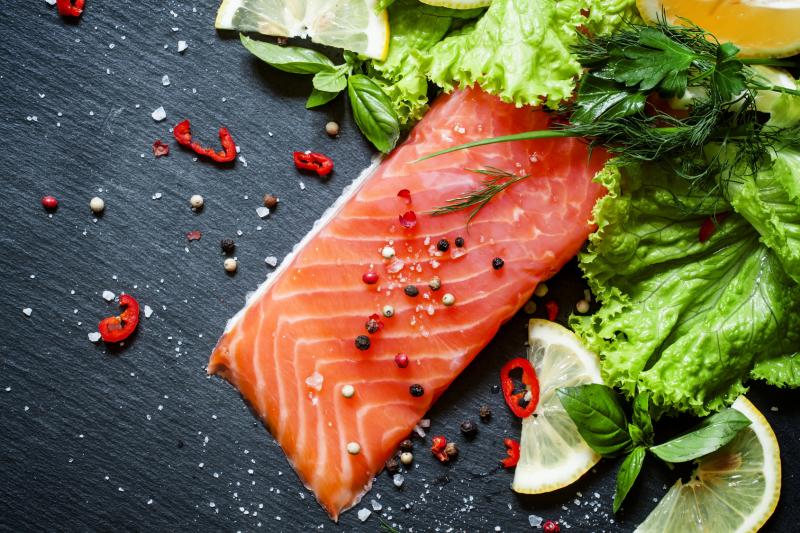
Eating fish at recommended levels helps reduce the risk of developing colorectal cancer, possibly through exposure to long-chain n-3 polyunsaturated fatty acids (n-3 LC-PUFAs), a study has found.
A total of 521,324 participants from the European Prospective Investigation into Cancer and Nutrition (EPIC) study completed food frequency questionnaires to estimate dietary intake of fish (total, fatty/oily, lean/white) and n-3 LC-PUFA.
There were 6,291 individuals who developed CRC over a median follow up of 14.9 years. Of these cases, 4,197 were colon cancers and 2,094 cases were rectal cancers. Compared with noncancer controls, those who developed the malignancy were more likely to be current or former smokers and have higher consumption of red and processed meats and alcohol.
In multivariable Cox proportional hazards models, increased consumption of fish was protective against the risk of incident CRC. The hazard ratios (HRs) associated with the highest vs lowest quintile of intake was 0.88 (95 percent confidence interval [CI], 0.80–0.96; ptrend=0.005) for total fish, 0.90 (95 percent CI, 0.82–0.98; ptrend=0.009) for fatty fish, and 0.91 (95 percent CI, 0.83–1.00; ptrend=0.016) for lean fish.
In a subgroup of 461 CRC patients and 461 matched noncancer controls, elevated plasma phospholipid n-3 LC-PUFA levels likewise had a risk-reduction effect (highest vs lowest quintile of n-3 LC-PUFA concentration: HR, 0.86, 95 percent CI, 0.78–0.95; ptrend=0.010). Meanwhile, a dietary ratio of n-6:n-3 LC-PUFA was associated with an increased risk of CRC (quintile 5 vs 1: HR, 1.31, 95 percent CI, 1.18–1.45; ptrend<0.001).
The present data contribute to the growing body of evidence linking fish consumption to potentially lower risk of CRC, researchers said.